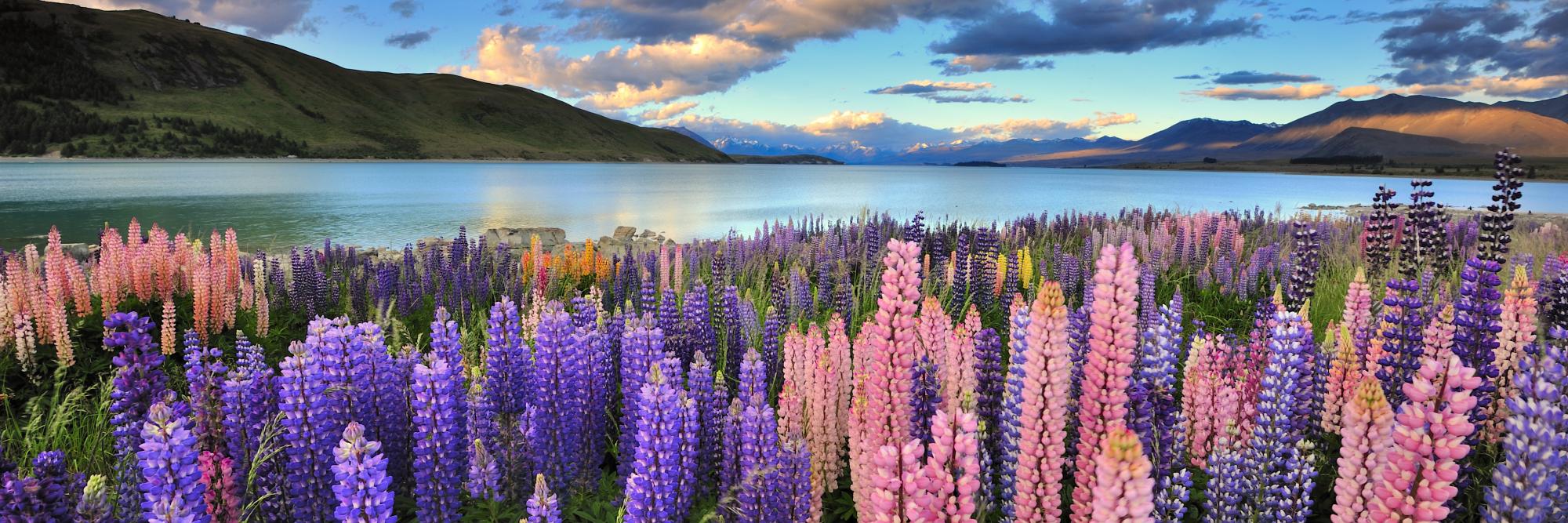Savannah is a 22-year-old student, born and raised in South Africa. She left Cape Town when she was 19 to travel and live abroad. The following year, in 2019, she packed her bags and made the move to Wellington, New Zealand to study and has lived there since.
About Savannah
Q: Where are you originally from?
A: Cape Town, South Africa
Q: Where are you currently living?
A: Wellington, New Zealand
Q: When did you move here?
A: 2019
Q: Why did you move; what do you do?
A: I moved because I wanted to study in New Zealand. I am currently a student and work two jobs; I look after kids, and I'm a bartender.
Living in Wellington
Q: What do you enjoy most about Wellington? How would you rate the quality of life compared to South Africa?
A: I’d say one of the things I enjoy most about Wellington is feeling so much safer walking alone. I can go for a run at night and not fear for my life. That freedom is something I’ll never take for granted. The quality of life is vastly different to South Africa, but in terms of healthcare, safety, job support etc., it's far better.
Q: Any negative experiences? What do you miss most about home?
A: I haven’t had any big negative experiences that are attributed to living in New Zealand. What I miss most about home are my friends and family, hands down.
Q: What are the biggest adjustments you had to make when settling into expat life here? Did you experience any particular elements of culture shock?
A: A big adjustment was normalising the cost differences and trying not to convert everything back into South African rands. Everything is exponentially more expensive if you’re not earning NZ dollars. I didn’t experience a lot of culture shock; there wasn’t anything vastly alarming to me from what I have experienced in other countries.
Q: What’s the cost of living compared to home?
A: The cost of living is far higher than in SA, but it’s all relative to what you earn. Now that I’ve lived here for a while and earn NZD it’s very manageable.
Q: How would you rate the public transport in Wellington?
A: I think Wellington public transport is great, but all the locals seem to think it’s rubbish. I think that, because I came from a country where public transport is so horrific and not a safe option for travel, the transport is so much more incredible to me. I have taken the bus, train and ferry, and all have been pretty enjoyable.
Q: How would you rate the healthcare in Wellington? Have you had any particularly good/bad experiences regarding doctors and hospitals?
A: The healthcare is good! I have been to the A&E once and waited for about two hours to be seen because my injury was not life-threatening. I was treated well, with respect and kindness, and I felt like I was in very capable hands.
Q: What are the biggest safety issues facing expats living in Wellington or New Zealand?
A: There aren’t really any great security concerns, but there has been an increase in homelessness and drug use recently. As with any country, it's good to be aware of your surroundings when walking alone at night. Other than that, there haven’t been any major issues.
Q: How do you rate the standard of housing in Wellington? What different options are available for expats?
A: The housing crisis is pretty bad. You will pay a lot for a potentially very average room in an average house, but often you can strike it lucky. The options for housing could include a long-term room at a hostel, or you could go flatting. Flatting is when a group of people live in an apartment or a house together and share communal areas but pay individual rent for their room.
Q: Any areas or suburbs you’d recommend for expats to live in?
A: Newtown, Mount Victoria, Aro Valley.
Studying in New Zealand
Q: Where are you studying in Wellington; what are you studying?
A: I am studying at Te Herenga Waka – Victoria University of Wellington. I am doing a BA degree with a triple major in Criminology, International Relations and Theatre.
Q: Are there particular visas or work permits needed for expats wanting to study in New Zealand?
A: Yes, one would have to apply for a student visa to study here.
Q: How did you go about applying for your studies?
A: I have a New Zealand passport due to dual citizenship with SA and NZ, so it was easy for me to start the application process. I was able to apply for my studies online.
Q: Any Universities or colleges you’d recommend for expats wishing to study in New Zealand?
A: Either Victoria University or Massey University.
Meeting people and making friends
Q: How tolerant are the locals of foreigners? Is there obvious discrimination against any particular group?
A: I think locals are extremely tolerant of foreigners because people that come to New Zealand to live and work ultimately contribute to the economy. There isn’t any discrimination against expats as such, but there are huge injustices that affect Māori and Pasifika. New Zealand is an incredible country that operates well in comparison to many other countries across the world, but there is huge progress to be made with regards to indigenous rights.
Q: Was meeting people and making friends easy? How did you go about meeting new people?
A: I found it challenging to make friends in the beginning, but once I had a few, my friendship circle expanded easily. I met people through university (though not many), through my flatmates and through my bartending, which is where the majority of my friends came from.
Q: Have you made friends with locals or do you mix mainly with other expats? What advice would you give to new expats looking to make friends with the locals?
A: I’d say I have a good mix of expat and local friends. I currently live with a Canadian, a Moroccan and three New Zealanders. A good tip for meeting locals would be to join Facebook groups in the area and introduce yourself by asking if anyone would be keen to show you around. Most people are eager to help and make life in NZ as enjoyable as possible.
Final thoughts
Q: Is there any advice you would like to offer new expat arrivals to Wellington or New Zealand?
A: I’d recommend getting out there and being proactive in starting your new life. Go out, make friends, and apply for lots of jobs. The city is full of potential, but it is on you, and the effort you put in will determine what you get out.
►Interviewed: March 2021



